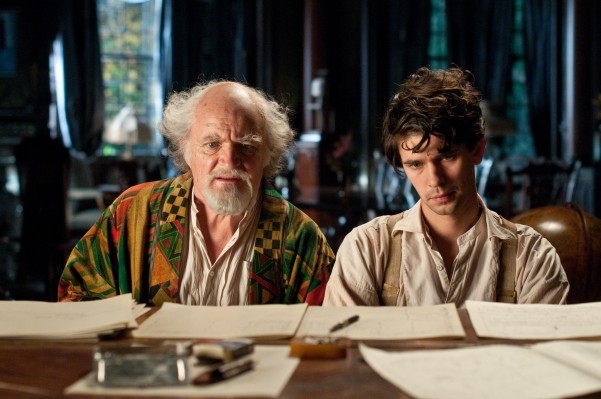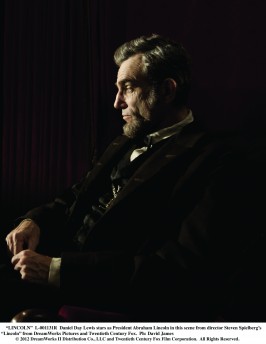
‘Cloud Atlas,’ with out actor Ben Whishaw (right), was one of the most gay-positive films released last year — and one of two that starred Whishaw (‘Skyfall’ was the other)
GLAAD has always seemed, to me, a strange organization. On the plus side, they are a watchdog group that looks out for the interest of LGBT people, especially how they are portrayed in the media. They call out bullshit when they need to, and they give mainstream journalism a mirror to look at their own way of covering gay issues.
On the other hand, GLAAD has always been a little starstruck itself. It holds big awards ceremonies where it invites media elites and celebrities, even when such adulation doesn’t seem deserved. Back when Isaiah Washington made his first homophobic comment about T.R. Knight, GLAAD attacked him. It then got him to do a PSA on their behalf, and all was forgiven … until the next time he made a gay gaffe. Strange bedfellows, that business.
But I was surprised by the headline I woke up to this morning that GLAAD was giving a failing rating to Hollywood for only releasing 14 films with LGBT characters in them in 2012.
“How could this be?” I thought. “If that were the case, I’d dry up reviewing movies. I see 14 gay-themed movies a month. What could they be talking about?”
Then I read deeper into the stories (you can see the entire report here). That 14 number reflects only the top 101 films released by six major Hollywood studios: Warners (Cloud Atlas, Rock of Ages), Paramount (Katy Perry: Part of Me, Fun Size, A Thousand Words), Columbia (Skyfall, 21 Jump Street, Think Like a Man, That’s My Boy), Universal (Pitch Perfect, Ted, American Reunion, The Five-Year Engagement), Disney (The Avengers) and Fox (none). And to me, both of those criteria — “major” (top-grossing) film from “major” (Big Six) studios provides a slanted view of the facts.
Maybe you didn’t see some films you remember seeing with positive gay characters — Perks of Being a Wallflower maybe, or ParaNorman? Cuz GLAAD didn’t count those, even though both turned in respectable grosses.
Consider this: In my year in review piece on 2012’s best movies, of my Top 20 films, 11 had gay themes and characters — and usually more than just passingly. And they weren’t all art-house and foreign language movies no one saw — some were quite significant, including Bernie (a big hit in Dallas, if not the world), How to Survive a Plague (a documentary about AIDS that was nominated for an Oscar and showed true LGBT heroes), Hitchcock and even, if you ask me, Lincoln, since we have some historical evidence about the man’s preference for male companionship.

Was ‘Lincoln,’ written by out author Tony Kushner, not gay enough for GLAAD … or just released by the wrong studio?
But even if GLAAD did count Lincoln for having a gay character, they might not have counted it because it was a DreamWorks production (though in association with other studios). Would that count, though, as one of the Big Six — even though it was the 13th highest-grossing film of 2012? (The Hunger Games, No. 3 on the list, didn’t make the cut because it was a LionsGate film. The study does mention a few studios in an endnote, but they even put Sony Pictures Classics and Fox Searchlight — who are owned by the same companies as Columbia and Fox, respectively — in the “ghetto studio” category.)
And what about films not in the top 100 by studios? To me, that’s like saying “Food in this country in bad because McDonald’s, Subway and Wendy’s sell fattening sandwiches,” without saying, “Yes, but they are not the only ways you eat food. There are tons of delicious restaurants in this world, you just have to seek them out.”
Maybe that’s what bothers me about GLAAD’s tongue-clucking disgust with Hollywood. Gay people have always made their world work for them. We seek out specialty films and festivals and art-houses so we can discover the good stuff that doesn’t have the budget to place $1 million ads during the Super Bowl. We don’t all eat at McDonald’s.
So I guess the question is: Is GLAAD’s role merely to chastise major studios for what they don’t do, or should it be to draw attention to what’s being done right? I like discovering good movies (let’s face it — many of the 14 films cited by GLAAD as gay-inclusive were just terrible), and if huge corporations consider them niche films rather than summer tentpoles… well, I guess I’m OK with that.












